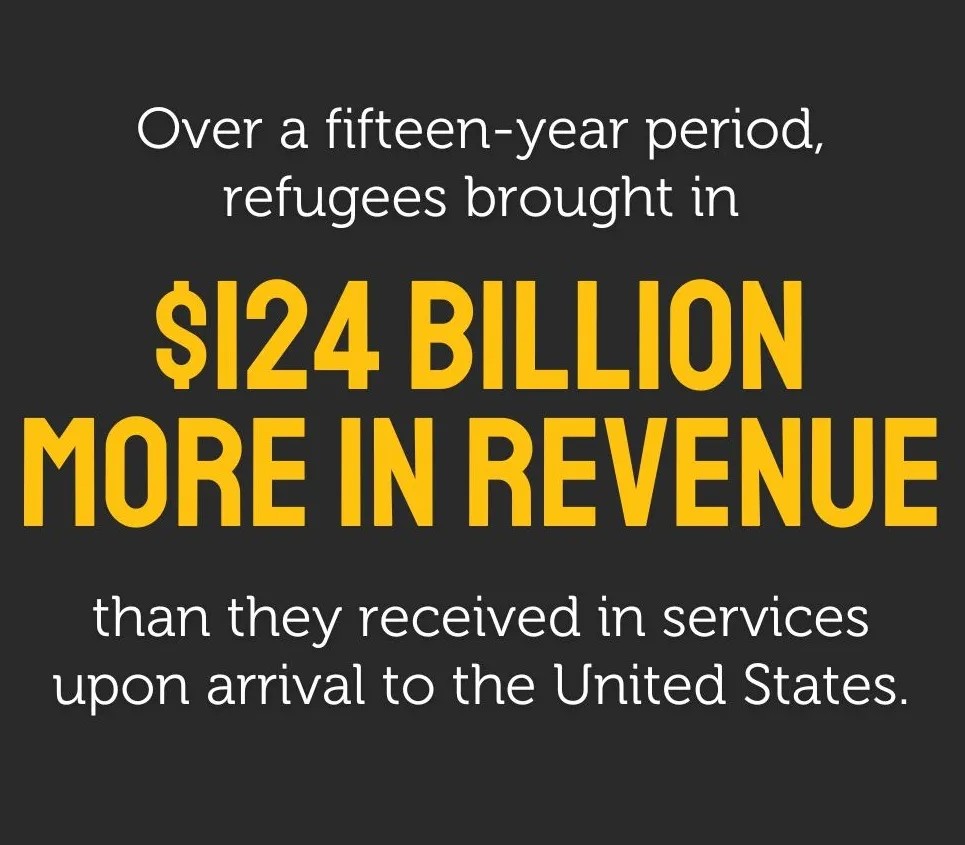Refugee households have annual spending power of over $83.8B. With resettlement paused, these billions are at risk.
Refugees contribute significantly to our communities—our churches, our schools, our hospitals. While many of their contributions are difficult to quantify, the economic impacts of refugees households are not.
In 2023 alone, refugees had a total household income of $115 billion, with a total spending power of $83.8 billion. They contributed $11.4 billion in state and local taxes and $19.9 billion in federal taxes. Refugee entrepreneurs generated $6 billion in total business income.
It sounds simple, but it’s true: that’s a lot of money.
And this doesn’t even account for the broader ways that resettlement bolsters our economy. For example, resettlement offices employ thousands—and so do America’s 178,000 refugee entrepreneurs.
All these contributions are at risk.
The Trump Administration’s “pause on resettlement” is ricocheting across the American economy. Without the Guaranteed Refugee Admissions Ceiling Enhancement (GRACE) Act—which would stabilize refugee admissions and preserve resettlement infrastructure—the economic contributions of future refugees will remain under threat.
We need to make this clear to our leaders. The reality of hyper-partisan politics and an uncertain national economy means that economic arguments for resettlement and the GRACE Act are particularly salient to unlikely allies.
Click to read the full article.


Recent Comments